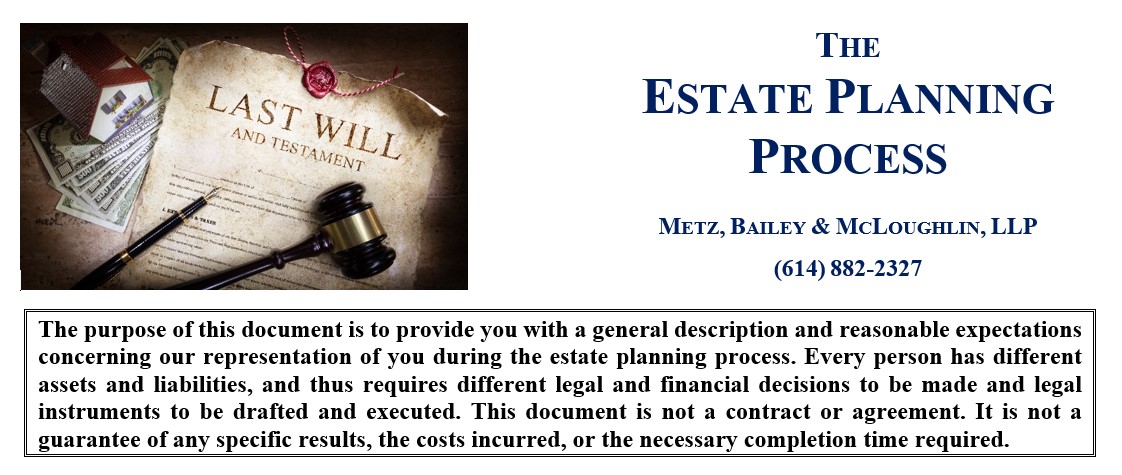
What is an Executor?
An Executor is the legal representative you nominate in your Will to represent your probate estate upon your death. After filing the Will in the Probate Court, the Court officially appoints the Executor. The Executor then gathers the assets that are governed by your Will and distributes them as you directed in your Will.
What is a Trustee?
A Trustee is the legal representative you name in your Trust to manage the assets in your Trust and any assets designated to move into your Trust upon your death. The Trustee administers these assets according to the terms of the Trust without going through the probate process. The Probate Court will not manage the Trust or the Trustee.
What are examples of assets that pass directly to beneficiaries but are NOT probate assets?
- Assets within a Trust or designated to move into a Trust upon your death by beneficiary designation
- Joint and Survivorship property
- Financial assets designated to be Payable on Death (POD)
- Property designated to Transfer on Death (TOD)
- Life insurance with named beneficiaries
- Retirement accounts with named beneficiaries
Do estate taxes and annual giving limits effect my estate planning?
In 2022, you can distribute $12.06 million ($24.12 mill. with your spouse), the lifetime estate tax exemption, to your heirs without federal estate taxes. There is no Ohio estate tax. In 2022, while you are alive, you can give up to $16,000 each year ($32,000 with your spouse) to one person (but to an unlimited number of people) without filing a gift tax return or reducing your lifetime exemption. Estate planning should include consideration of these tax issues.
How long does estate planning take?
You will typically sign the final estate planning documents within six to seven weeks following your initial appointment with your attorney. Often the length of time depends on your circumstances and scheduling of the signing.

Estate planning is a major portion of our practice, and it is our goal to make the process as easy as possible. When we meet with you, we will discuss various ways to avoid the costs of probate while satisfying your planning objectives, so that your wealth is efficiently transferred to your loved ones upon your death. We will select the appropriate estate planning documents and tailor them to suit your specific needs.
We will identify ways you might hold certain assets and make beneficiary designations during your life to avoid probate upon your death. We will assist you in converting asset titles as needed, including drafting new deeds or creating a Trust to protect your assets. We will also help you identify the best persons in your life to play certain roles during your life as your Power of Attorney for financial purposes and for healthcare purposes.
Action steps in our Firm’s typical estate planning process include:
- We will send to you a checklist of questions about your assets and your family. You (and your spouse if any) will bring the completed checklist to your initial appointment with your attorney.
- The Initial Meeting: We will identify your major assets and help you formulate your planning objectives.
- We will select the appropriate estate planning documents to address your specific needs and goals.
- We will draft all those estate planning documents and send them to you for final review, allowing you to make any changes you desire, before signing.
- The Signing: You will sign final estate planning forms, and we will send you home with originals. We offer to store your original Will in our vault for free, but you may choose to take the Will home with you.
- We will file any forms as may be necessary (i.e. rewritten Deeds and Transfer On Death affidavits).
- We will send an invoice. You may have a legal insurance plan that covers all or a portion of this amount. We accept several legal plans. Note: Legal plans never cover filing fees, if there are any.

